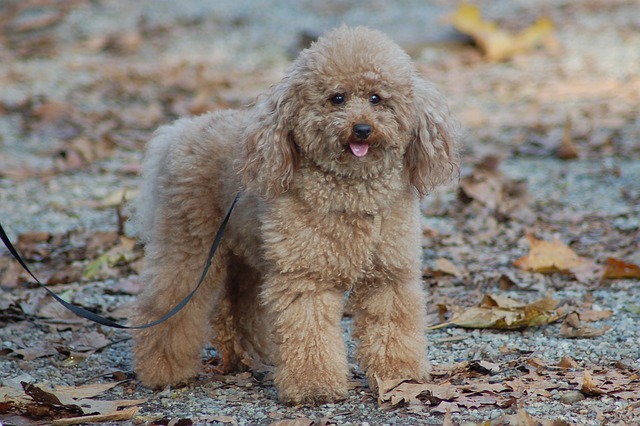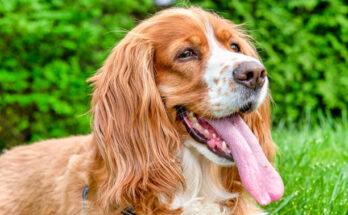The Poodle ranks among the most intelligent dog breeds worldwide which presents itself through elegance and versatility. The Poodle stands out because of its hypoallergenic curly coat and bright intelligence and loving nature which combines to create an exceptional companion animal and show dog and service dog ability. This SEO-optimized information source provides a complete breakdown of Poodle life by examining their historical background along with their body characteristics and their canine educational requirements and nutritional regimen and exercise needs and grooming standards and general health matters.
Table of Contents
- Introduction to Poodles
- History and Origin
- Physical Characteristics
- Personality and Temperament
- Training a Poodle
- Exercise and Activity Needs
- Nutritional Requirements and Diet
- Grooming and Hygiene
- Common Health Issues and Preventive Care
- Socialization and Behavior
- Living Conditions and Adaptability
- Fun Activities and Games
- Conclusion
1. Introduction to Poodles
The Poodle breed features three sizes of dimorphic dogs that possess massive intelligence alongside active qualities alongside loveable traits and distinguished curly fur. The Poodle breed includes three official sizes called Standard, Miniature and Toy hence adapting to diverse residential needs.
Their training abilities together with friendly temperament and low allergen fur create an excellent fit for household companionship including people with allergies.
2. History and Origin
The Poodle breed started in Germany but French society adopted it as their noble symbol of choice.
Fun Fact:
The original meaning of Poodle originates from German “Pudel” which indicates the historic relationship between this breed and water retrieval.
3. Physical Characteristics
Sizes and Build
- Standard Poodle: Over 15 inches tall, 40-70 pounds
- Miniature Poodle: 10-15 inches tall, 10-15 pounds
- Toy Poodle: Under 10 inches tall, 4-6 pounds
Coat and Colors
The coat of Poodles consists of dense curls which appear as different color variations.
- Black
- White
- Apricot
- Brown
- Red
- Silver
4. Personality and Temperament
People typically describe Poodles through their friendly outlook along with their effective intelligence and energetic personality.
Are Poodles Good Family Dogs?
Yes! Poodles display loyalty toward humans because they show friendship and gentleness which makes families with kids excellent fits.
Are Poodles Good Guard Dogs?
Due to their watchful nature Poodles function well as guardians which makes them effective watchdogs.
5. Training a Poodle
Poodles stand among the most trainable dog breeds and hold a status as one of the smartest dogs to train.
Basic Training Tips:
The earliest training period for puppies should begin immediately.
Positive reinforcement works through treating your Poodle and expressing appreciation.
Socialization stands as a fundamental practice because you should introduce your poodle to fresh surroundings with different people.
Training sessions with poodles need to be stimulating because this breed responds best to brain-stimulating activities.
6. Exercise and Activity Needs

Poodles maintain their happiness by receiving daily exercise together with their health needs.
Daily Exercise Needs:
At least 1 hour of exercise daily
The activities for this dog include walking, running, swimming together with agility sessions.
Mental stimulation: Puzzle toys, obedience training
Regular exercise activity protects Poodles from developing behavioral problems because of boredom.
7. Nutritional Requirements and Diet
To support their active life and maintain coat health Poodles require balanced nutrition.
Recommended Diet:
The recommended dietary protein sources for Poodles include chicken fish turkey and beef.
- High-quality protein (chicken, fish, turkey, beef)
- Healthy fats (omega-3 and omega-6 for coat health)
- Complex carbohydrates (brown rice, sweet potatoes, vegetables)
Feeding Schedule:
- Puppies: 3-4 meals per day
- Adults: 2 meals per day
Poodles tend to develop obesity so feeding beyond their nutritional needs should be prevented.
8. Grooming and Hygiene
Poodles own dense coats which need frequent professional attention for proper maintenance.
Grooming Routine:
Brushing: Daily to prevent matting
Professional Grooming: Every 4-6 weeks
Bathing: Every 3-4 weeks
Evaporating ear solution application needs to happen once a week to stop ear infections.
Dental Care: Brush teeth 2-3 times per week
9. Common Health Issues and Preventive Care
Health concerns related to both inherited and lifestyle factors frequently affect Poodles.
Common Health Issues:
- Hip Dysplasia
- Progressive Retinal Atrophy (PRA)
- Ear Infections
- Bloat (Gastric Dilatation-Volvulus)
- Addison’s Disease
Preventive Care:
- Regular Vet Check-ups
- Balanced Diet and Weight Control
- Routine Vaccinations and Parasite Control
10. Socialization and Behavior
Socializing Your Poodle:
Introduce your poodle to different individuals along with animals and various setting at a young age.
Positive behavior training methods should be used to reward appropriate actions.
Common Behavioral Issues:
Poodles develop extreme nervousness when isolated alone beyond short periods of time.
Proper training serves to prevent persistent barking in Poodles.
11. Living Conditions and Adaptability
Poodles demonstrate extensive environmental versatility so they successfully adapt to any home setting.
Best Living Conditions for Poodles:
- Apartments: Suitable for Toy and Miniature Poodles.
- Houses with Yards: Ideal for Standard Poodles.
- Hot Climates: Ensure proper hydration and shade.
- Cold Climates: Their coat provides insulation but still requires warmth.
Cold climates demand warmth for a poodle coat though its insulation keeps the dog warm.
12. Fun Activities and Games
Poodles enjoy both physical games along with intellectual stimulation.
Fun Activities:
- Swimming: Great for their water-retrieving instincts.
- Agility Training: Enhances obedience and fitness.
The Scent Work activity activates their intellectual capabilities while developing their tracking skills. Frisbee together with Fetch activities help dogs both exercise and develop strong bonds.
13. Conclusion
The Poodle dog breed remains intelligent by nature while showing affection toward people and presents a wide range of potential uses yet demands thorough care practices along with proper exercising and consistent attention. Poodles provide their owners both loyalty and joyful companionship in their capacity as family pets or show dogs and service companions.
Key Takeaways:
Highly trainable and intelligent breed.
Every day brings a need for physical activities along with brain-engaging stimulation.
A proper diet maintains both the health of your coat and total body wellness.
A poodle needs regular grooming treatments for proper coat management.
Proper care combined with love enables Poodles to become devoted joyful pets which last from years.




